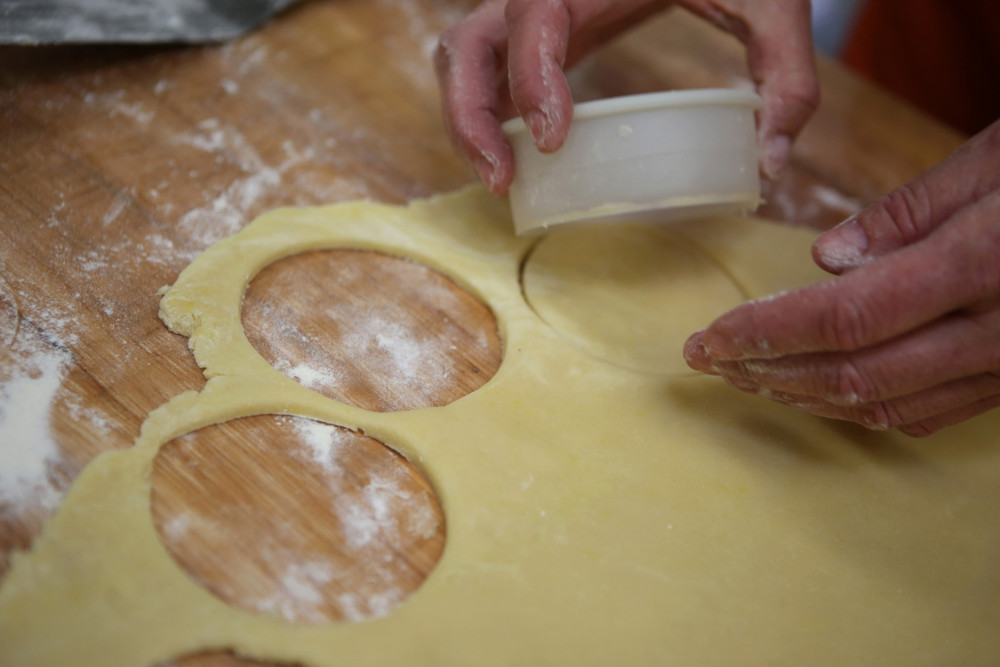By Neil Johnson
The Janesville Gazette, Wis.
BRODHEAD
Brodhead organic farmer Dela Ends remembers selling some bread and simple baked goods at her farm market years ago, until she learned the state had banned the sale of anything not cooked in a licensed commercial kitchen.
Ends didn’t have the proper license or kitchen, so she stopped selling baked goods.
Ends, who owns and runs Scotch Hill Farms in Brodhead, said she wants to wade back into the baking business to “diversify” her offerings of organic vegetables and wares. But she still doesn’t have a licensed kitchen.
She and two other area women joined a lawsuit filed Wednesday in Lafayette County Court against the state’s Department of Agriculture, Trade and Consumer Protection to try to overturn the state’s ban on the sale of home-baked goods.
It’s the first time such a suit has come to Wisconsin, said the women’s attorney, Erica Smith of the nonprofit Institute for Justice.
Wisconsin and New Jersey are the only two states that ban “unlicensed” home-baked goods, even “nonhazardous” or “shelf-stable” items that don’t require refrigeration. The suit seeks to remove those restrictions.
It comes after the state Legislature stalled on a 2013 measure known as the “Cookie Bill,” which would scale back legislation that requires commercial kitchens and licensing, which can cost up to $80,000, Smith said.
The bill, like the suit, would allow unlicensed, face-to-face sales of up to $7,500 in nonrefrigerated, “shelf-safe” baked goods annually per vendor.
The first time the bill was introduced, it had bipartisan support. It passed the Senate but was blocked from a vote in the Assembly by Speaker Robin Vos, a Republican who owns a commercial popcorn-cooking operation, Smith said.
The bill was introduced again in fall 2015, but trade groups, including the Wisconsin Bakery Association, lobbied against it, some citing public health concerns.
The state bakers group stated that commercial operators “don’t need more competition; we need cooperation from our government!”
Smith said many expect Vos will again block a vote.
“That’s the reason for the lawsuit,” Smith said. “It’s not about food safety. We’re talking about cookies and muffins here.
It’s a competition issue, and courts have held that restricting business and protecting against competition is not a legitimate government interest.”
Ends and her partners in the lawsuit, Lafayette County farmers market operator Kris Marion and Green County bed and breakfast operator Lisa Kivirist, say the law slams the door on the foot of small entrepreneurs.
“In Wisconsin, we stomp something like home-baked cookies. We grind them to a halt,” Ends said. “But with other, huge laws, we just ram them through under the cover of night.”
The suit does not seek to expand sales beyond small, local markets. But Smith said the court would have no say on setting a sales cap. The Legislature would have to agree on a cap, she said.
In Wisconsin, jarred or canned homemade pickles, jams, salsas and certain other items with high acidity are exempt from the rules on baked goods, although their sales are capped.
The state Department of Justice said it had received Wednesday’s lawsuit, but a spokesperson declined comment.
The only other state to see such a lawsuit over home-baked goods is Minnesota, Smith said. Her group filed that suit, too.
She said that suit had a positive outcome in that it pressured the Legislature to review the law. The state has since rolled back rules for small producers of baked goods and allows sales up to $16,000 a year.
Tim Banwell, the Rock County Health Department’s environmental health director, said he’s “on the fence” over licensing for the sale of home-baked goods.
“In food studies, baked goods don’t get listed as major carriers for food-borne illness. It’s sort of not really like a hamburger,” Banwell said. “But a lack of a handler’s hand-washing can spread common illnesses with any food. A house cat can walk across the counter in a home kitchen.”














































































































































































































































































































































































